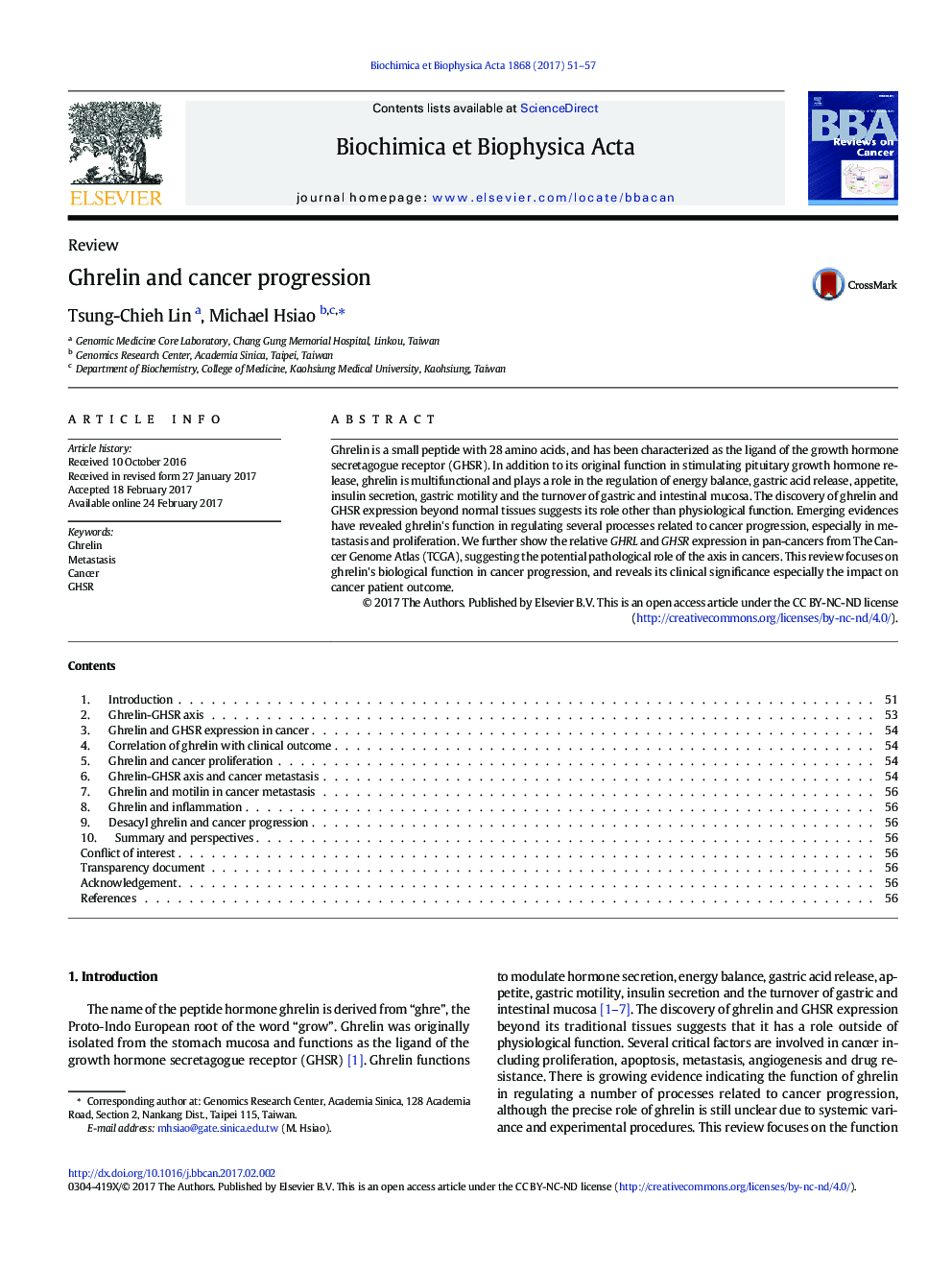| Article ID | Journal | Published Year | Pages | File Type |
|---|---|---|---|---|
| 5523997 | Biochimica et Biophysica Acta (BBA) - Reviews on Cancer | 2017 | 7 Pages |
â¢The molecular mechanism of ghrelin in cancer progression is illustrated.â¢Ghrelin expression is clinically associated with cancer patient outcomes.â¢Pan-cancer panel demonstrates ghrelin expressions in various types of cancer patients.
Ghrelin is a small peptide with 28 amino acids, and has been characterized as the ligand of the growth hormone secretagogue receptor (GHSR). In addition to its original function in stimulating pituitary growth hormone release, ghrelin is multifunctional and plays a role in the regulation of energy balance, gastric acid release, appetite, insulin secretion, gastric motility and the turnover of gastric and intestinal mucosa. The discovery of ghrelin and GHSR expression beyond normal tissues suggests its role other than physiological function. Emerging evidences have revealed ghrelin's function in regulating several processes related to cancer progression, especially in metastasis and proliferation. We further show the relative GHRL and GHSR expression in pan-cancers from The Cancer Genome Atlas (TCGA), suggesting the potential pathological role of the axis in cancers. This review focuses on ghrelin's biological function in cancer progression, and reveals its clinical significance especially the impact on cancer patient outcome.
